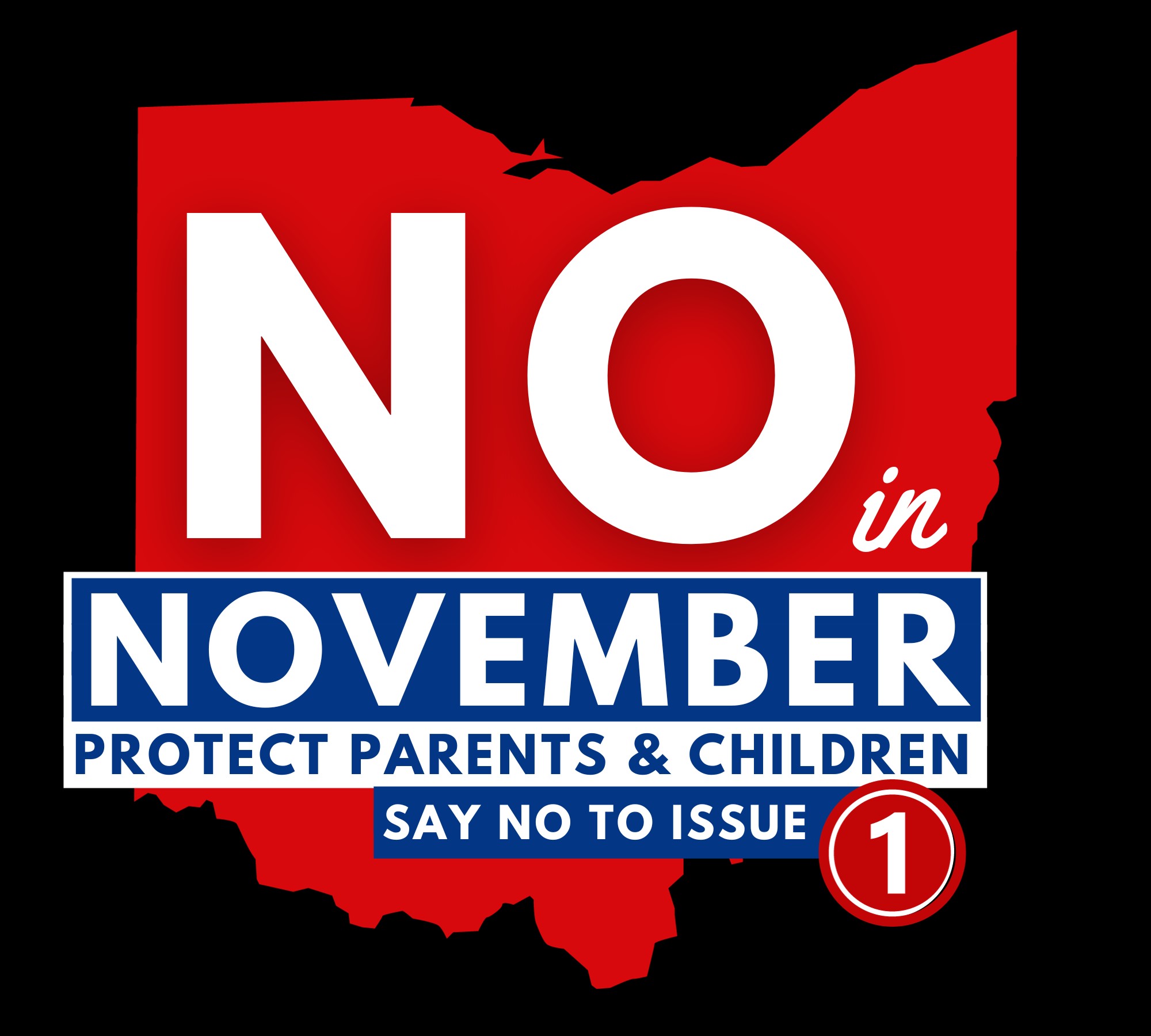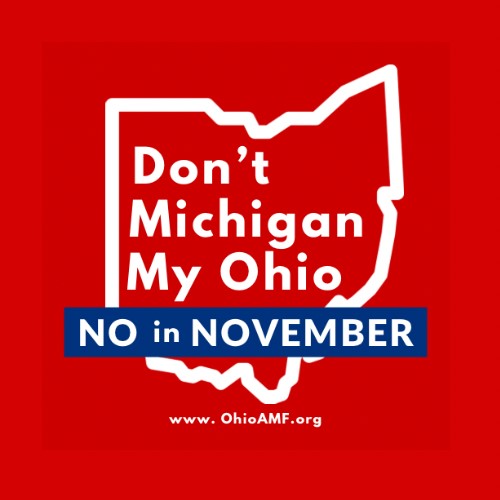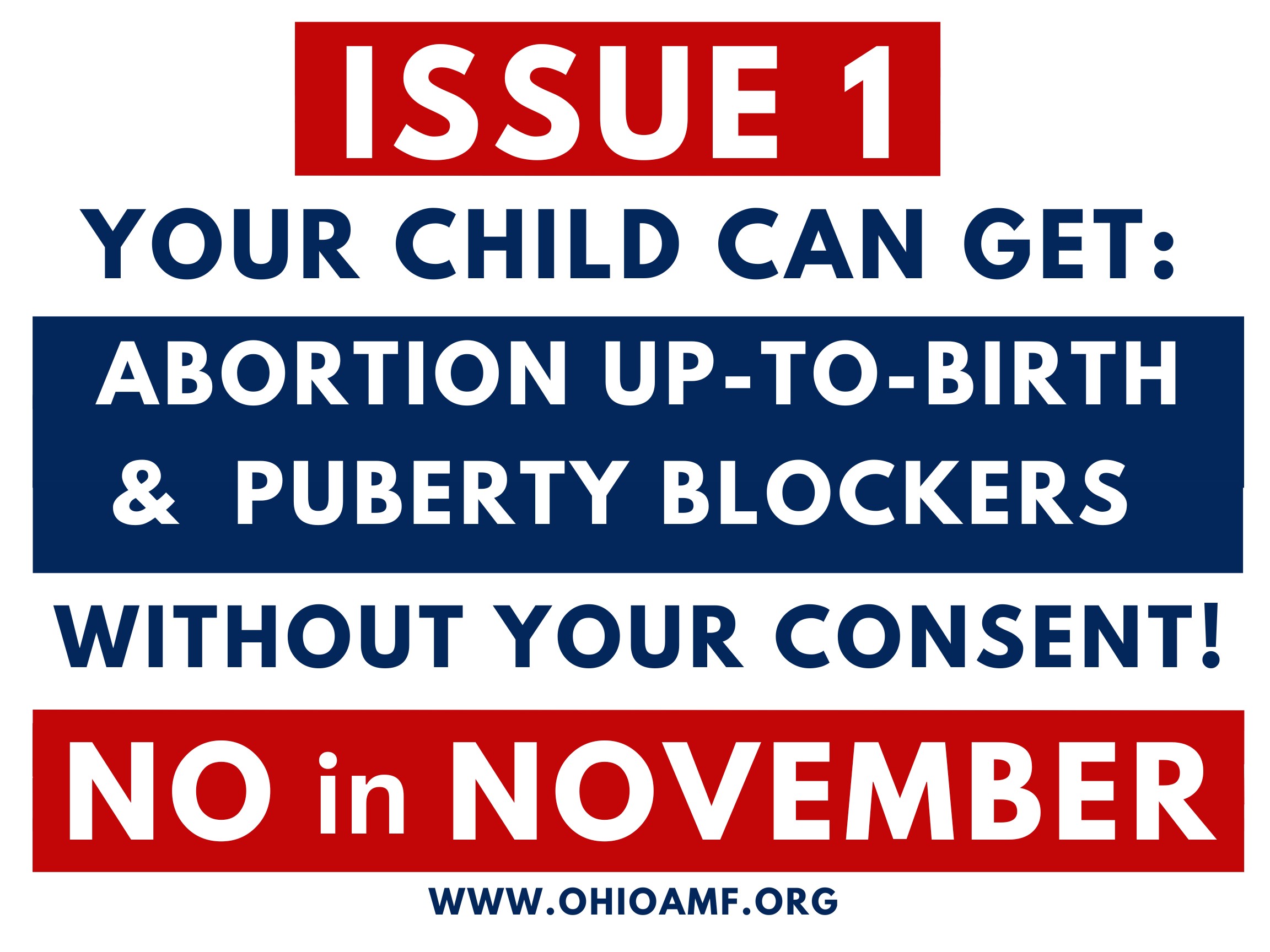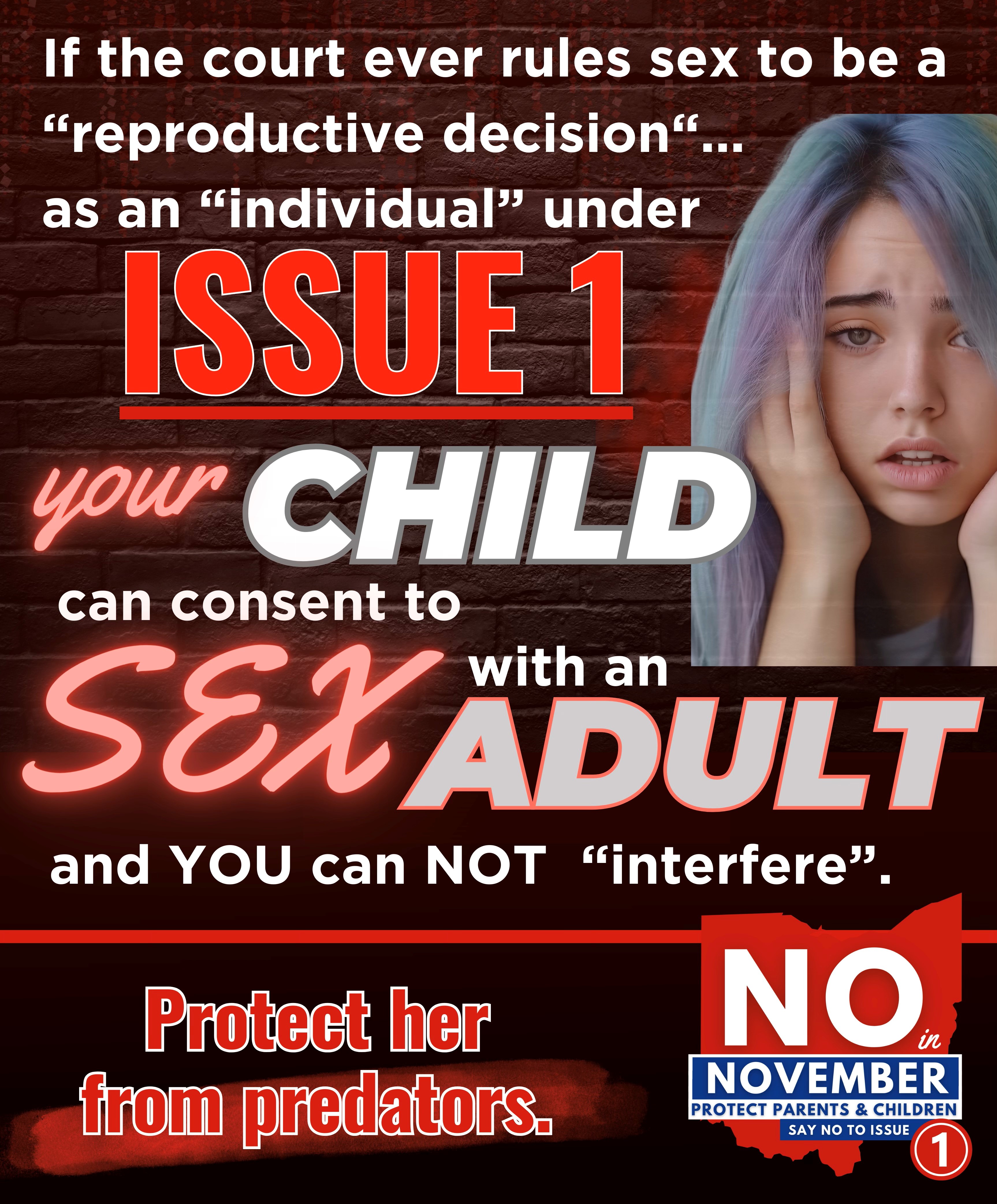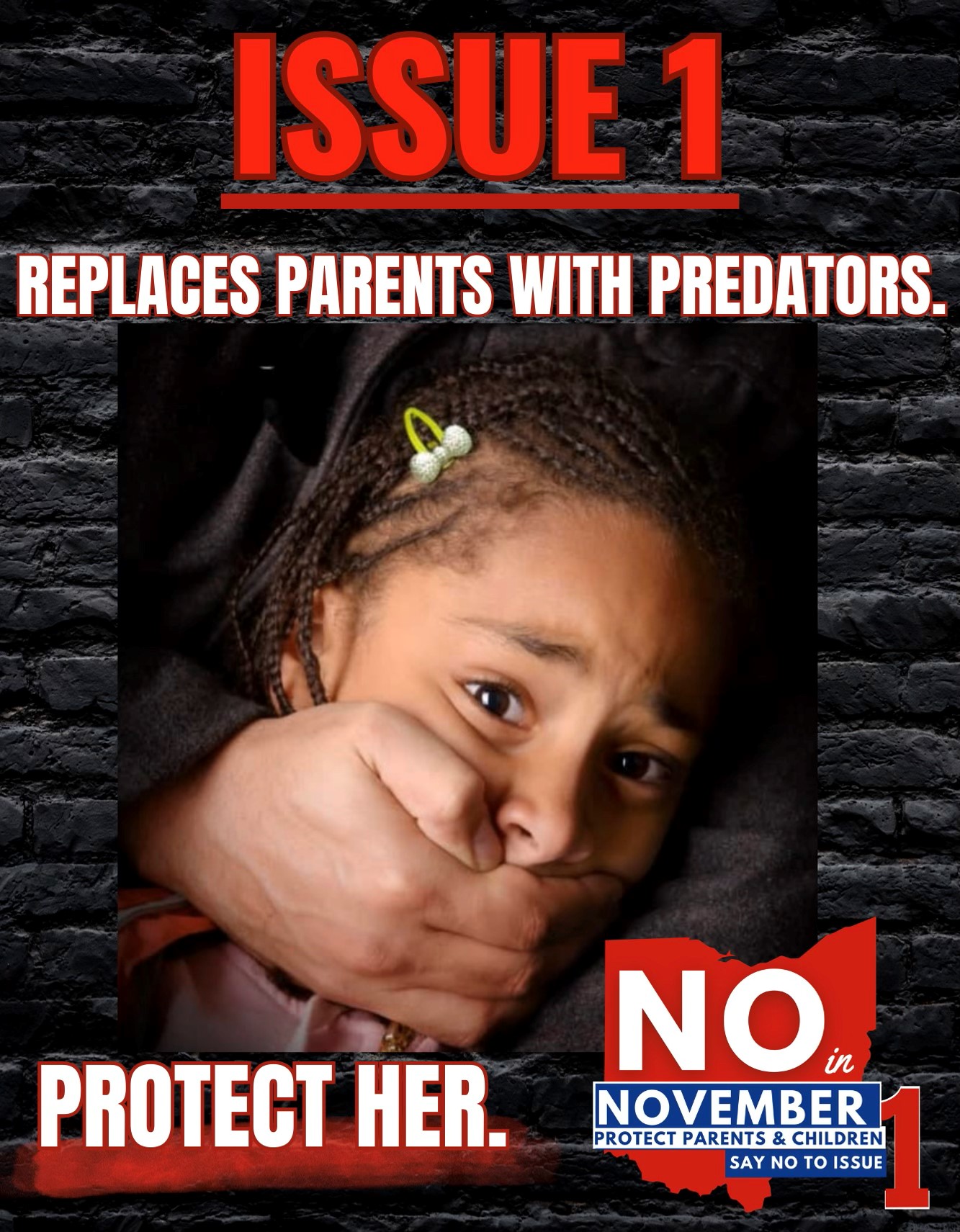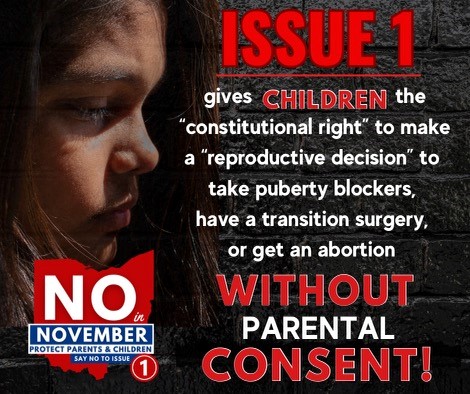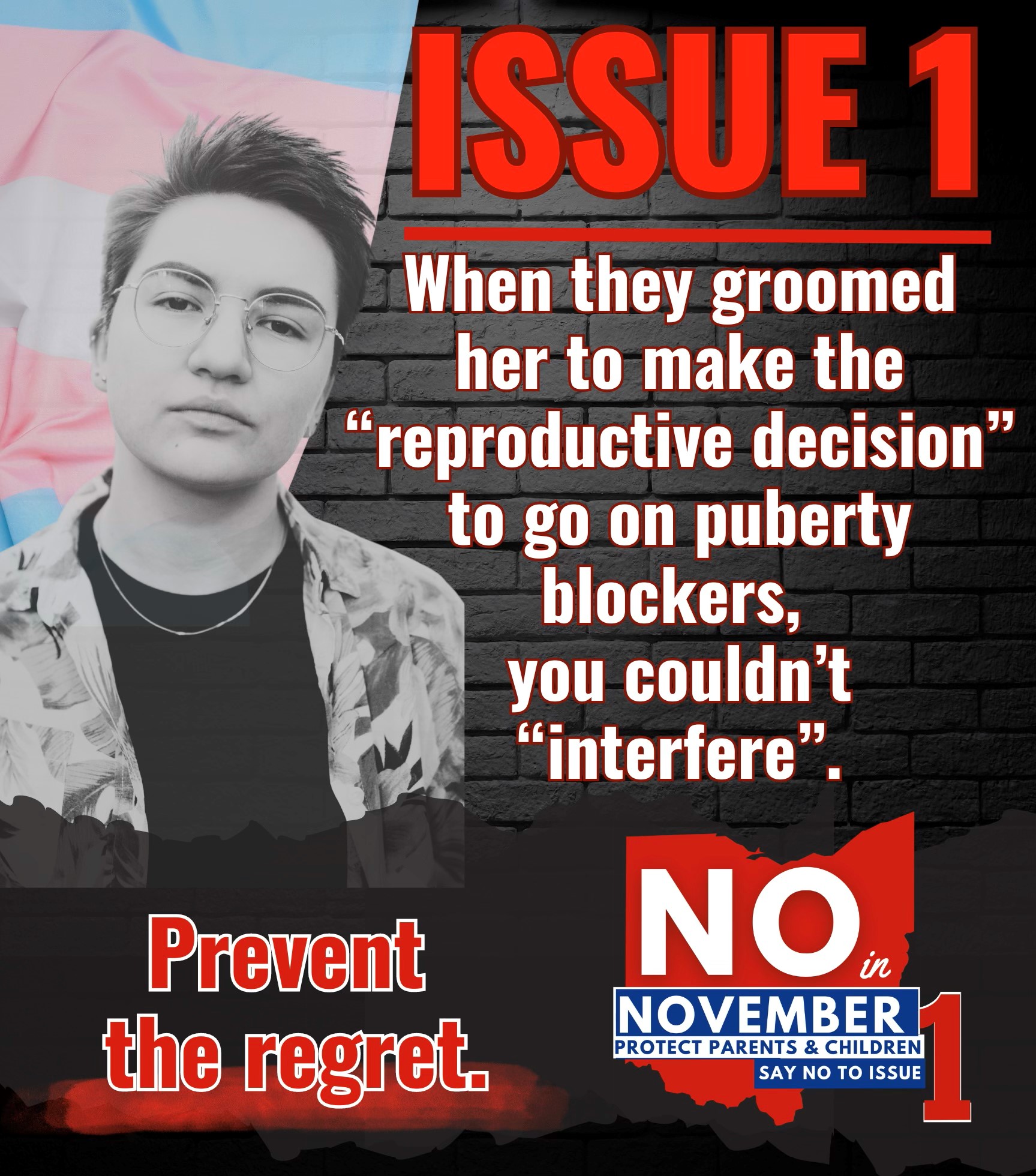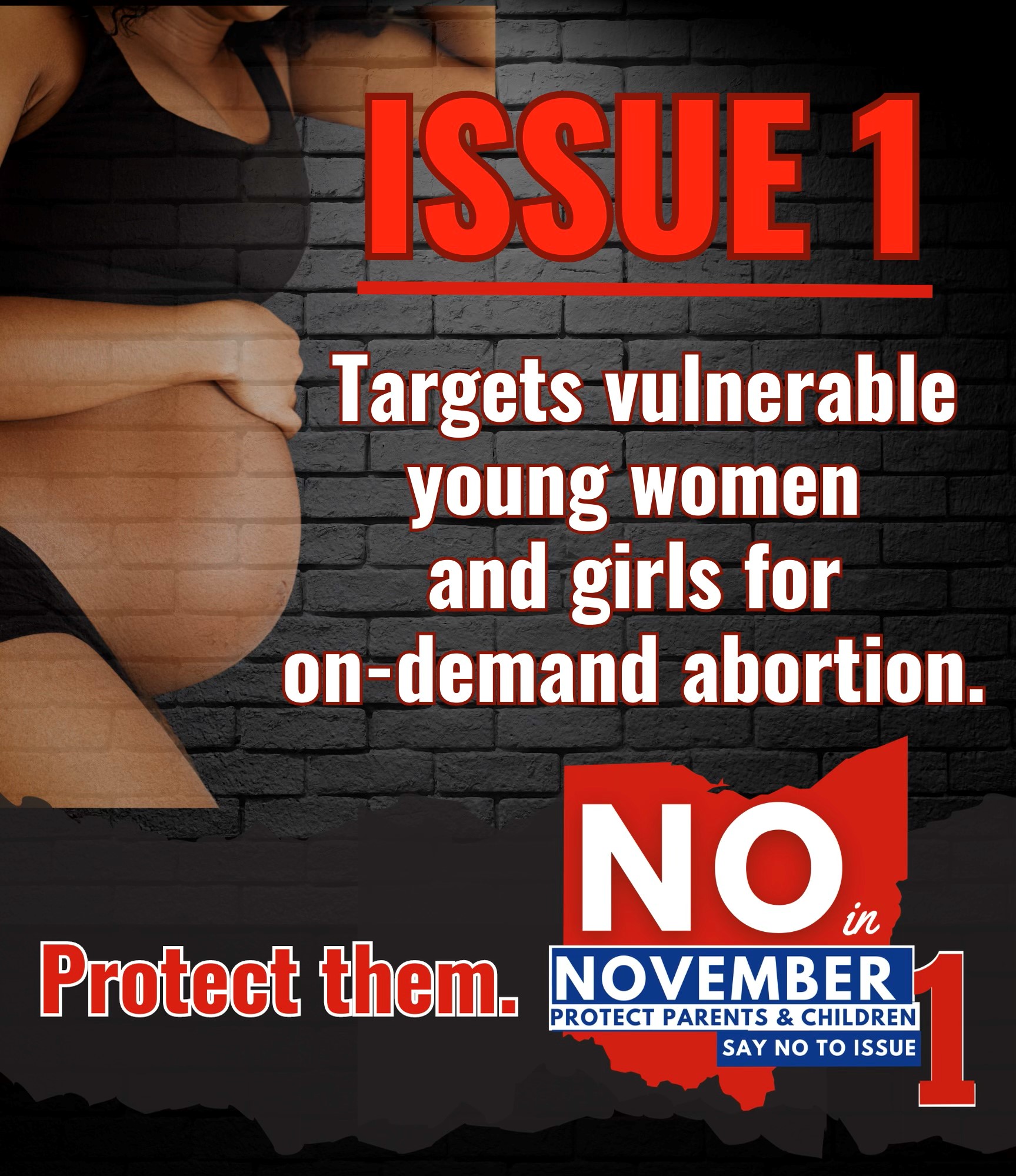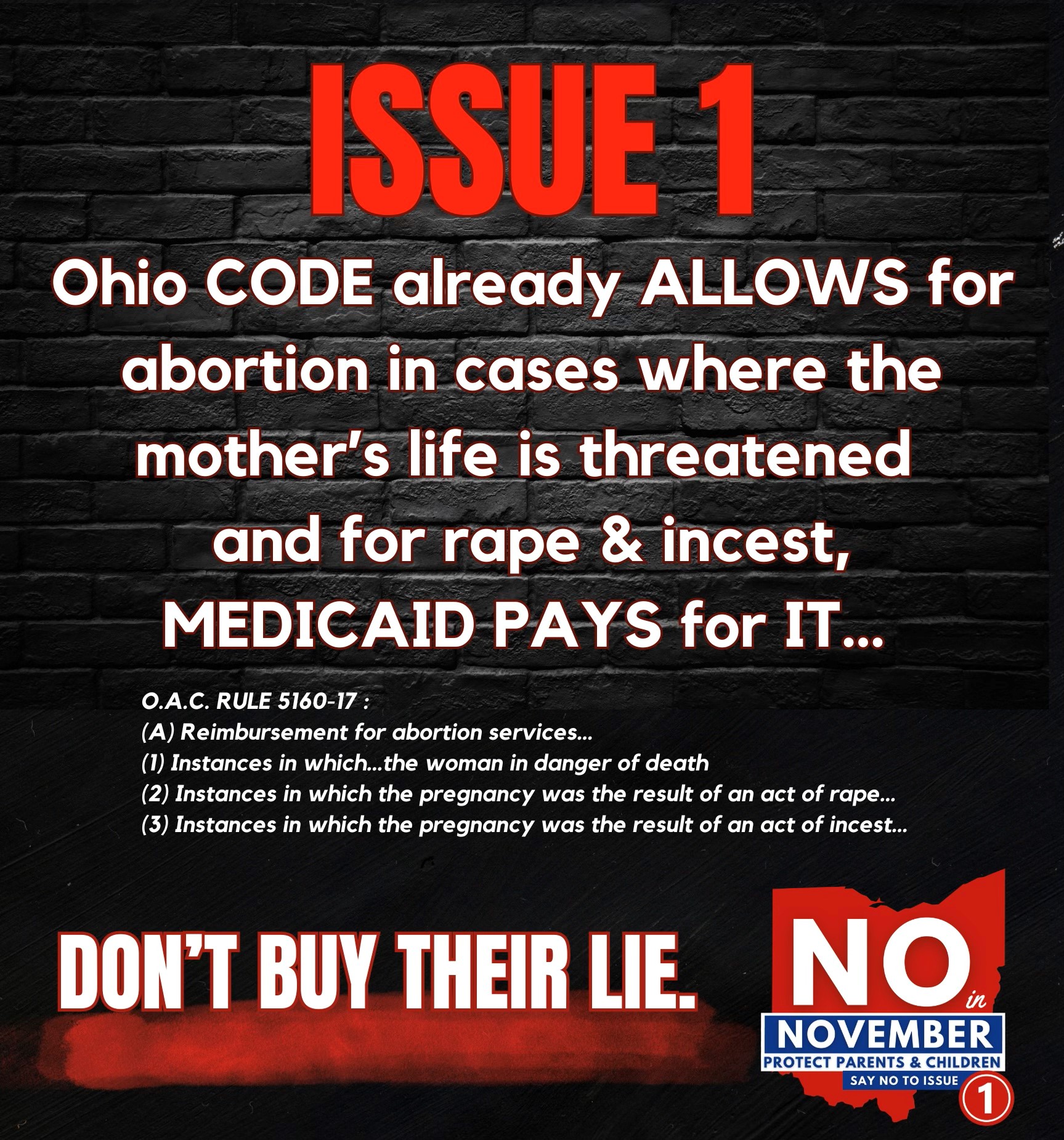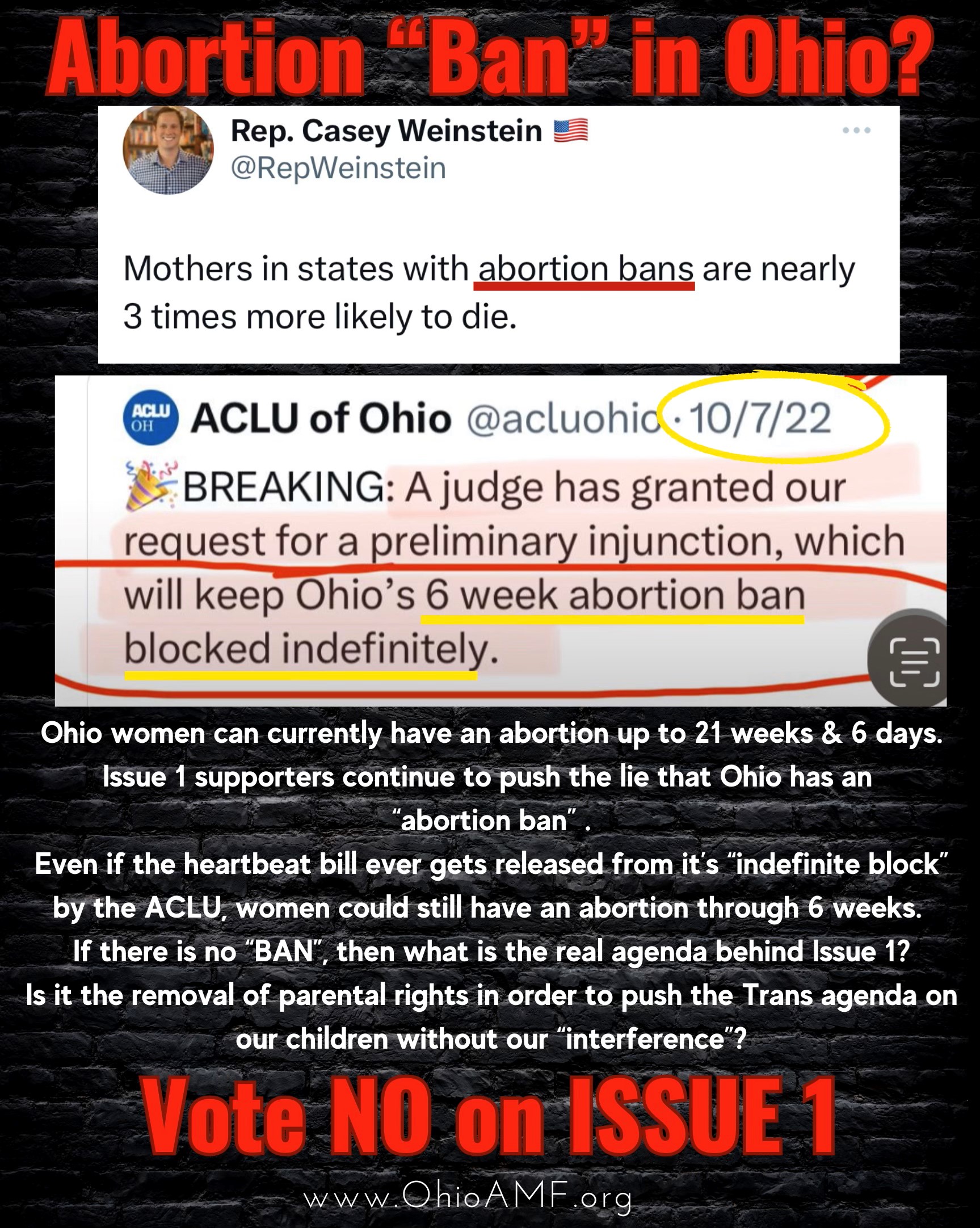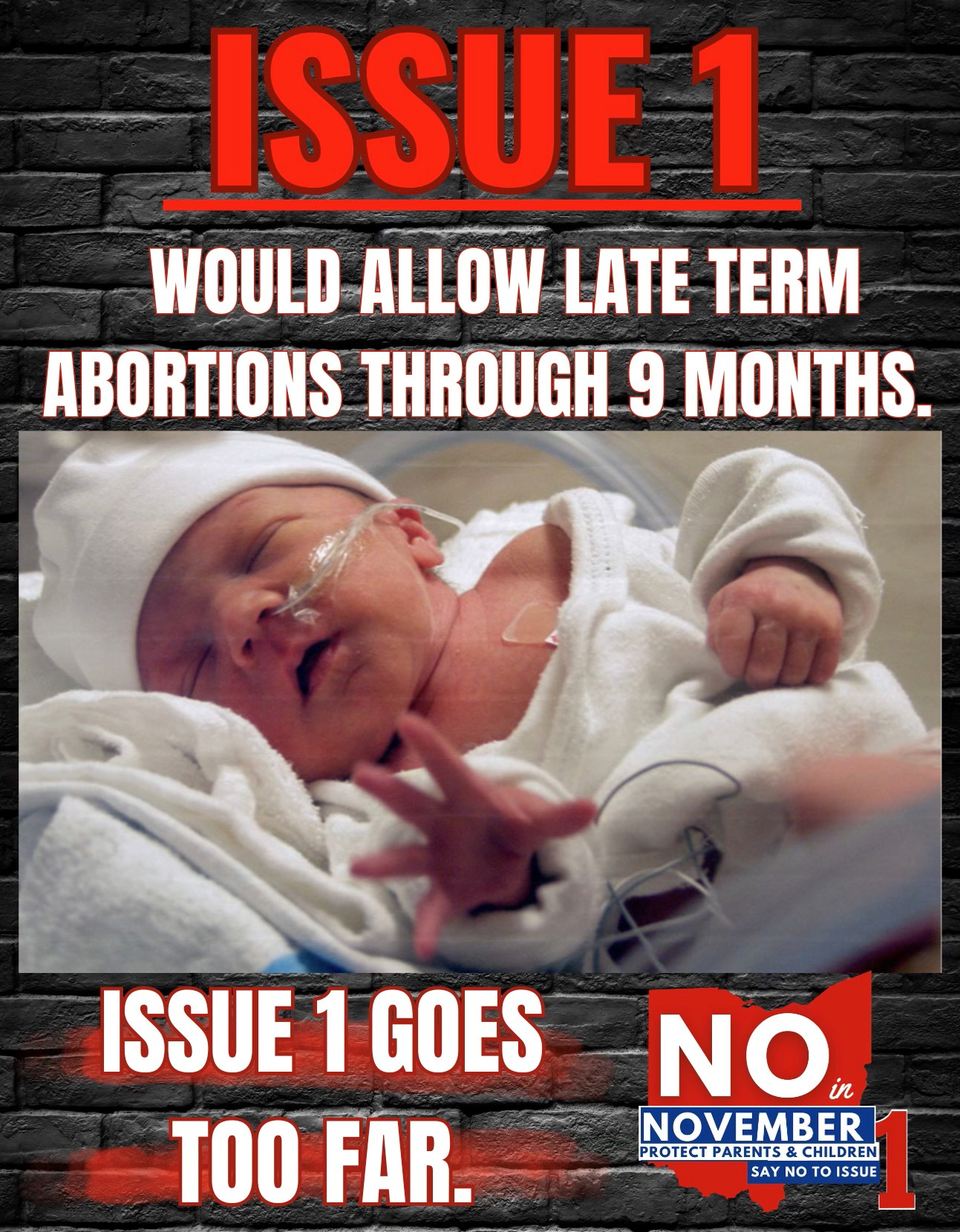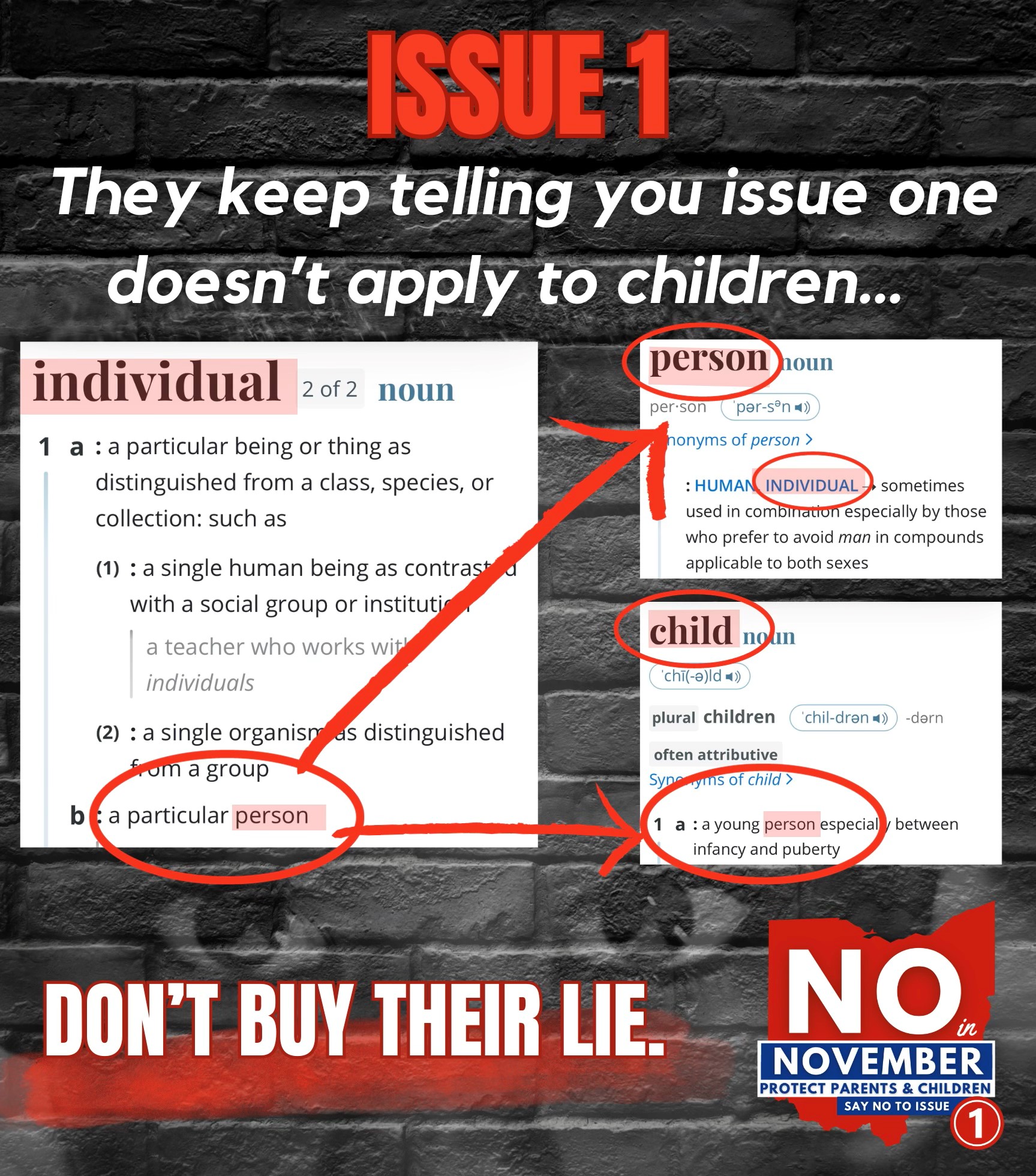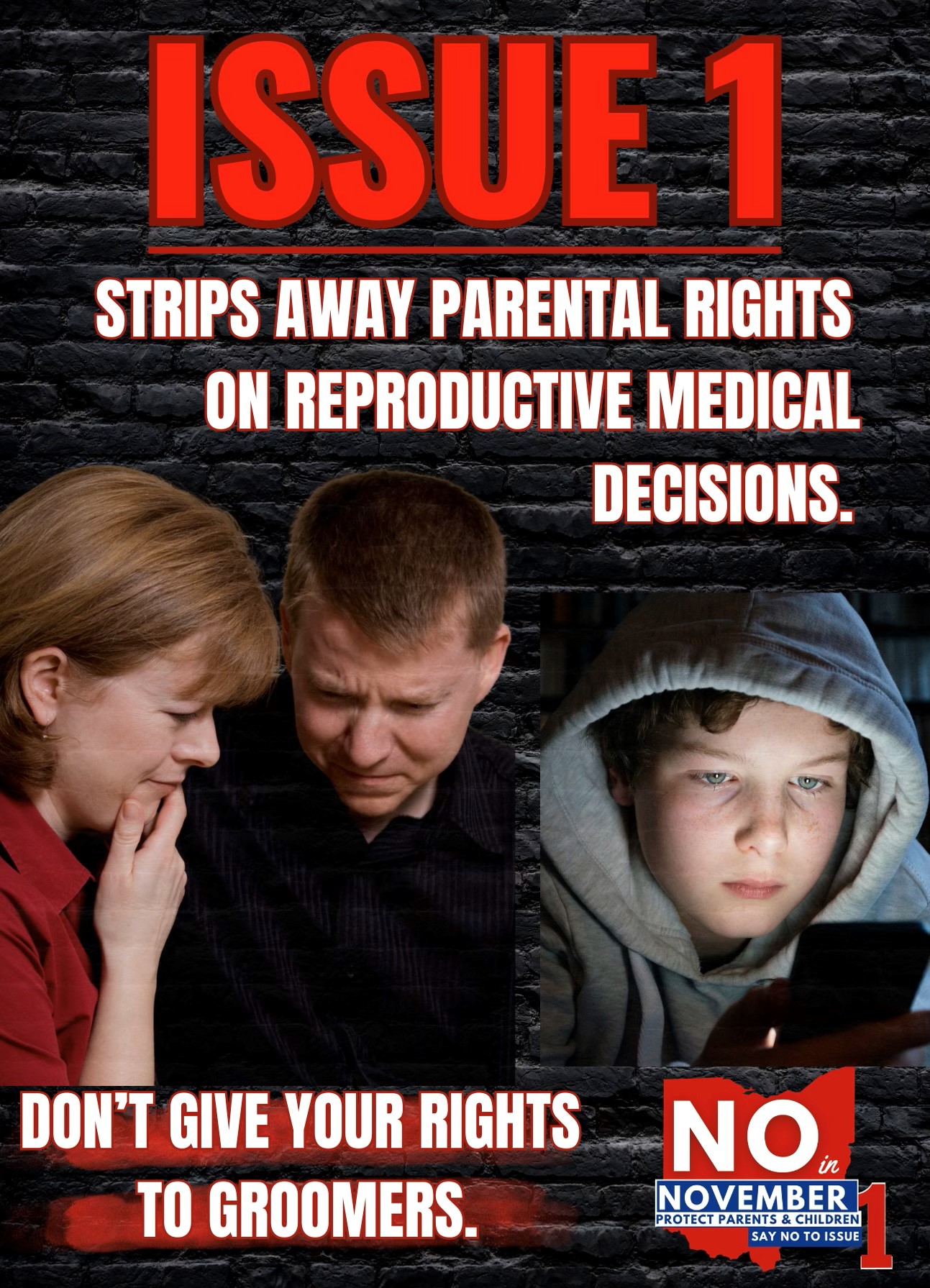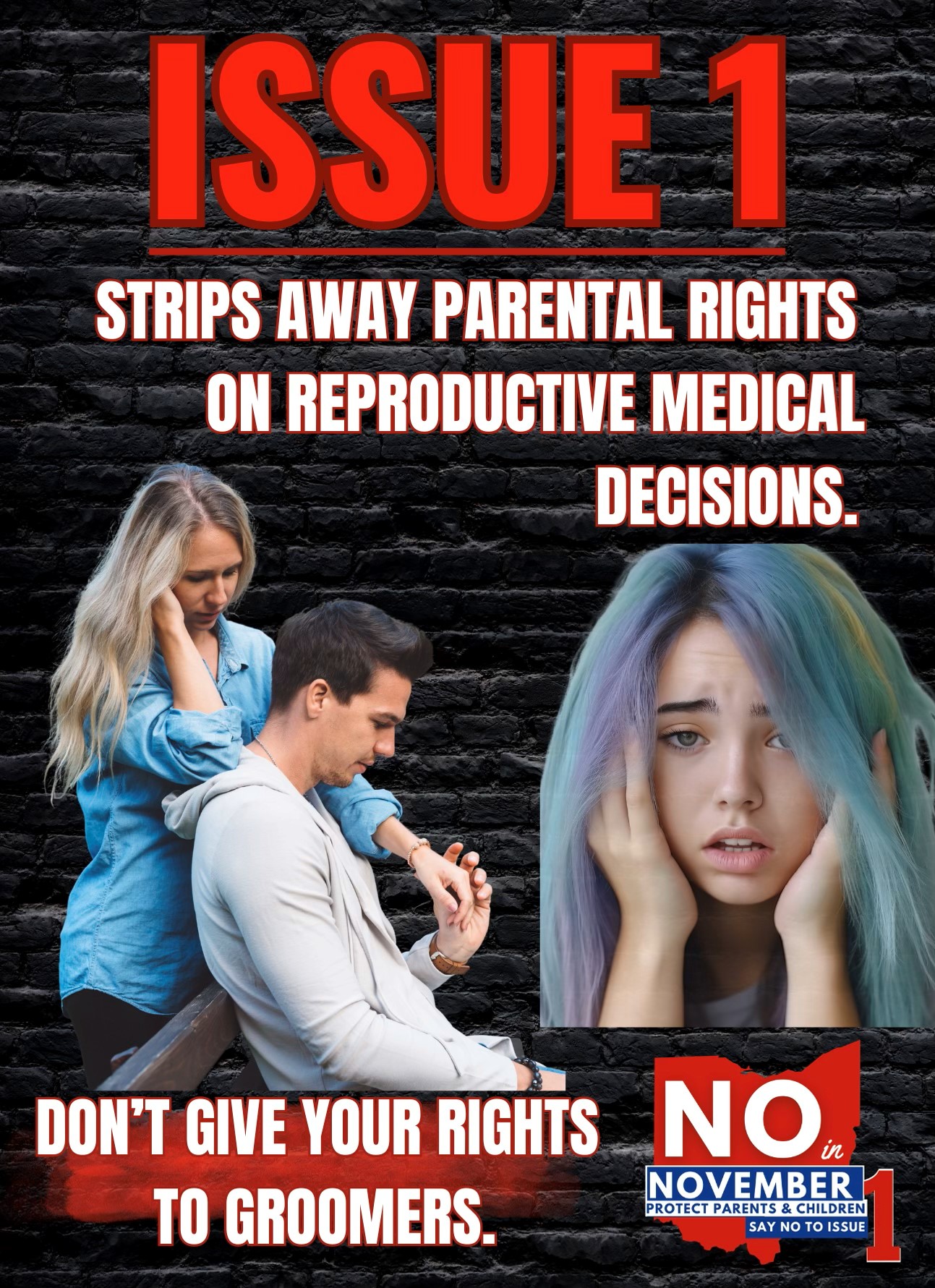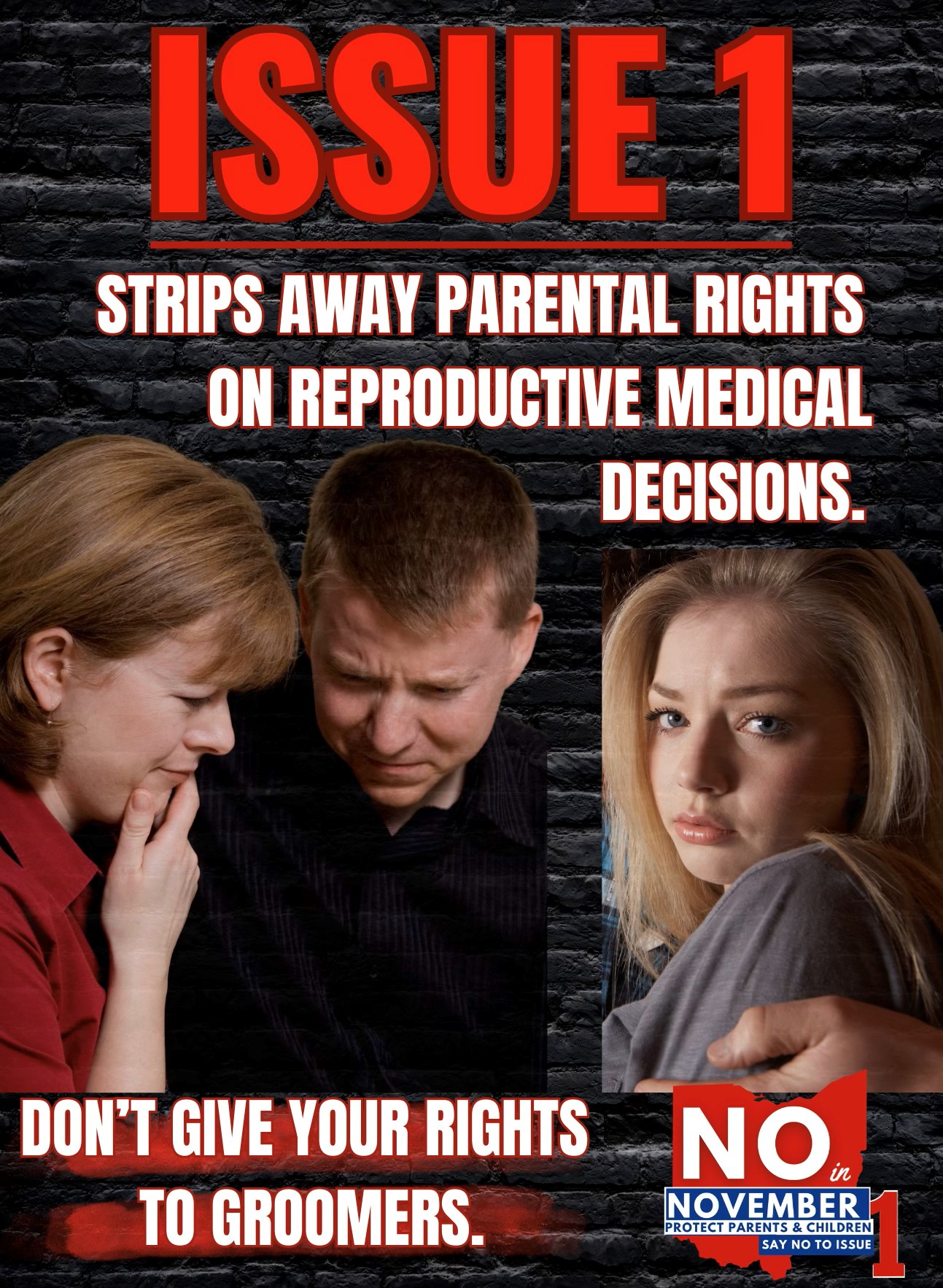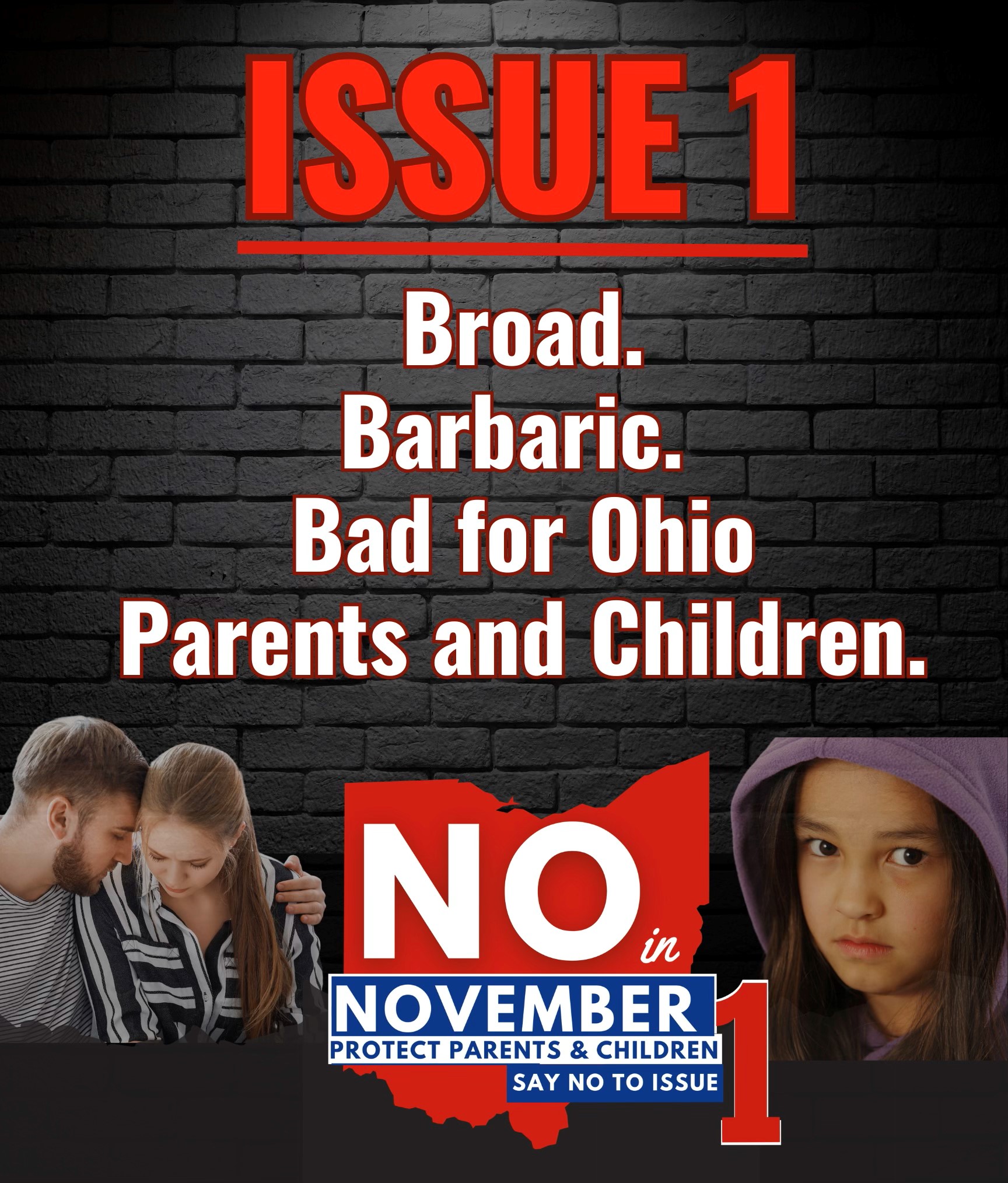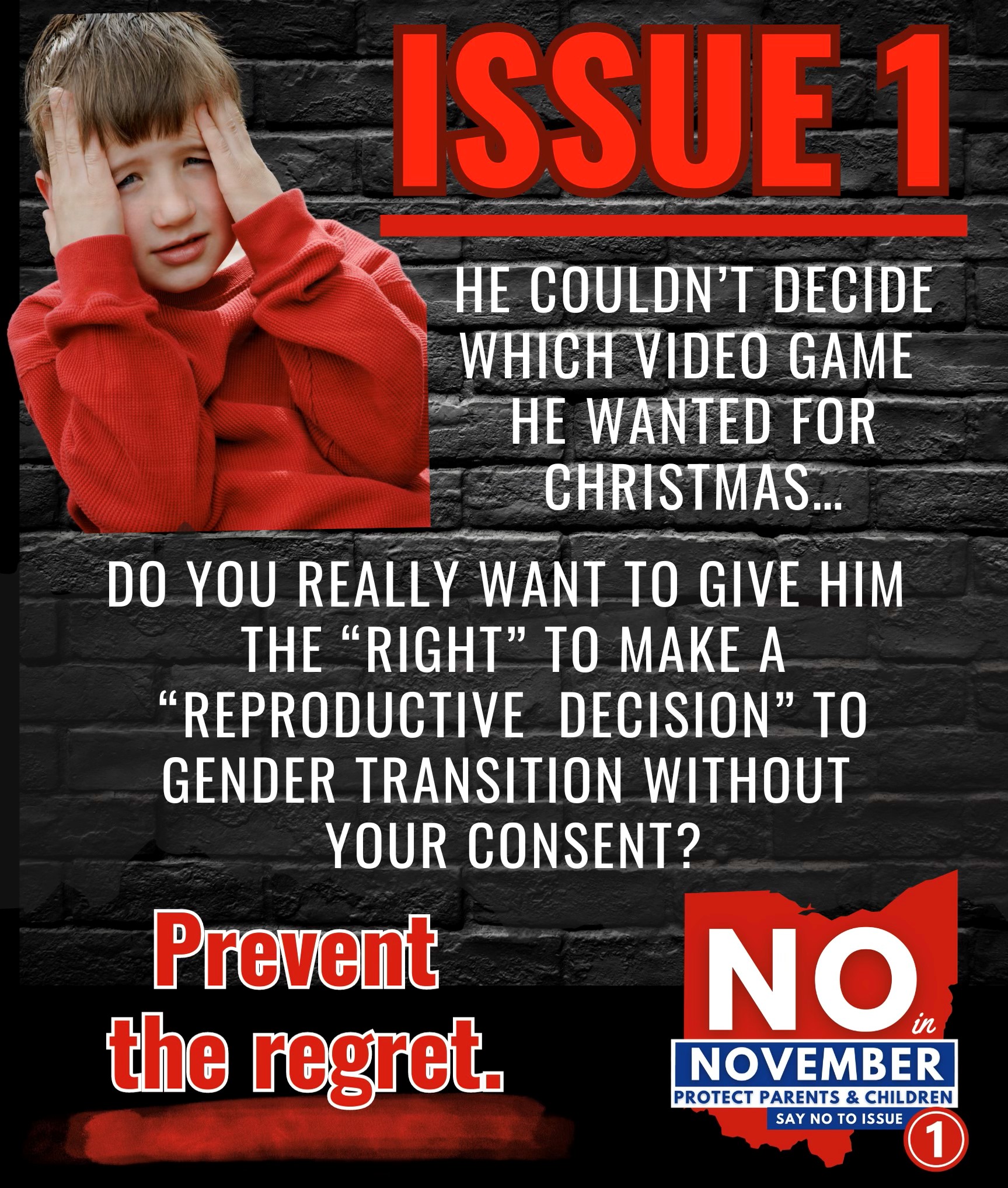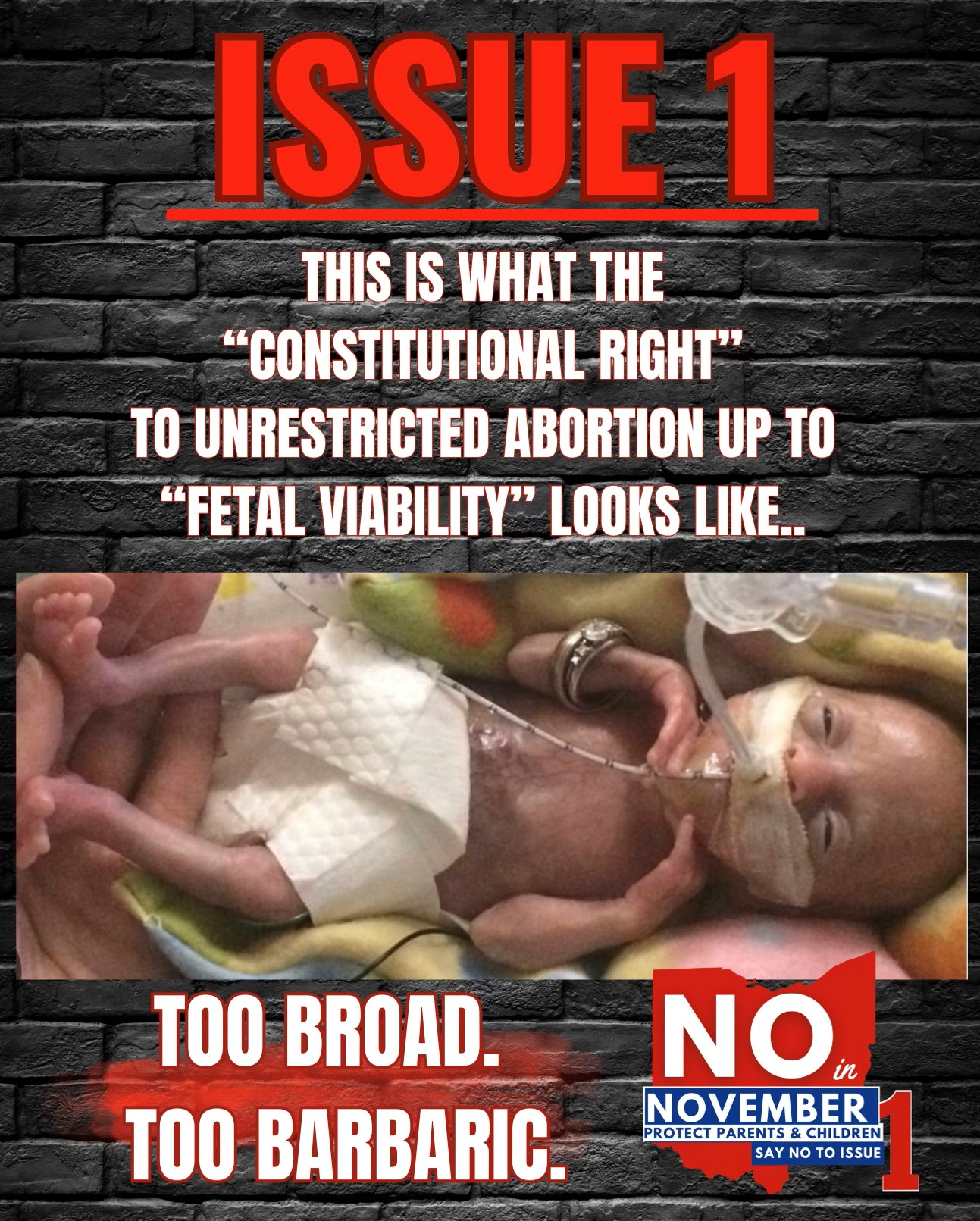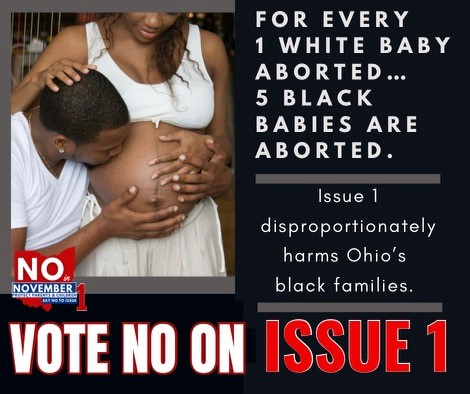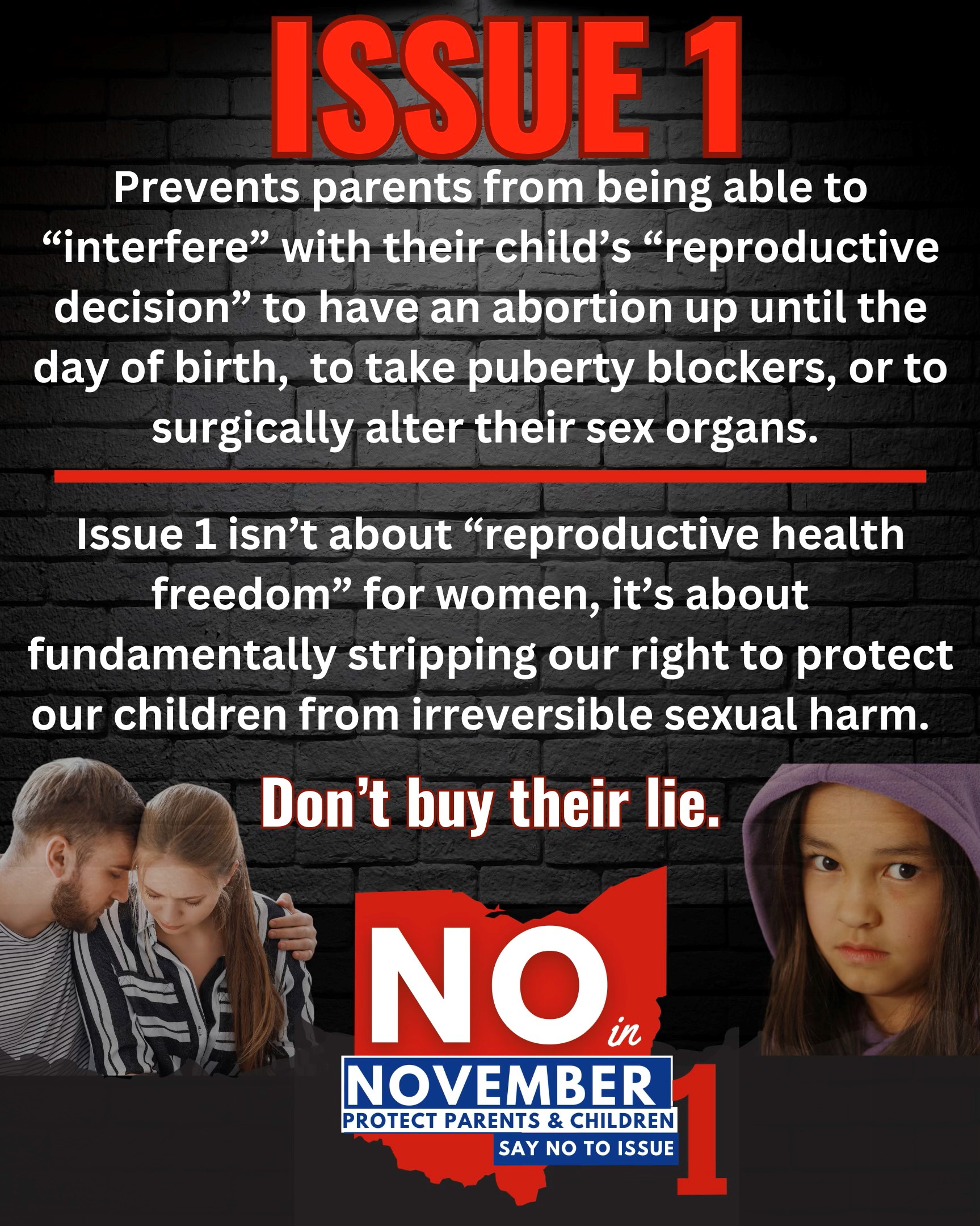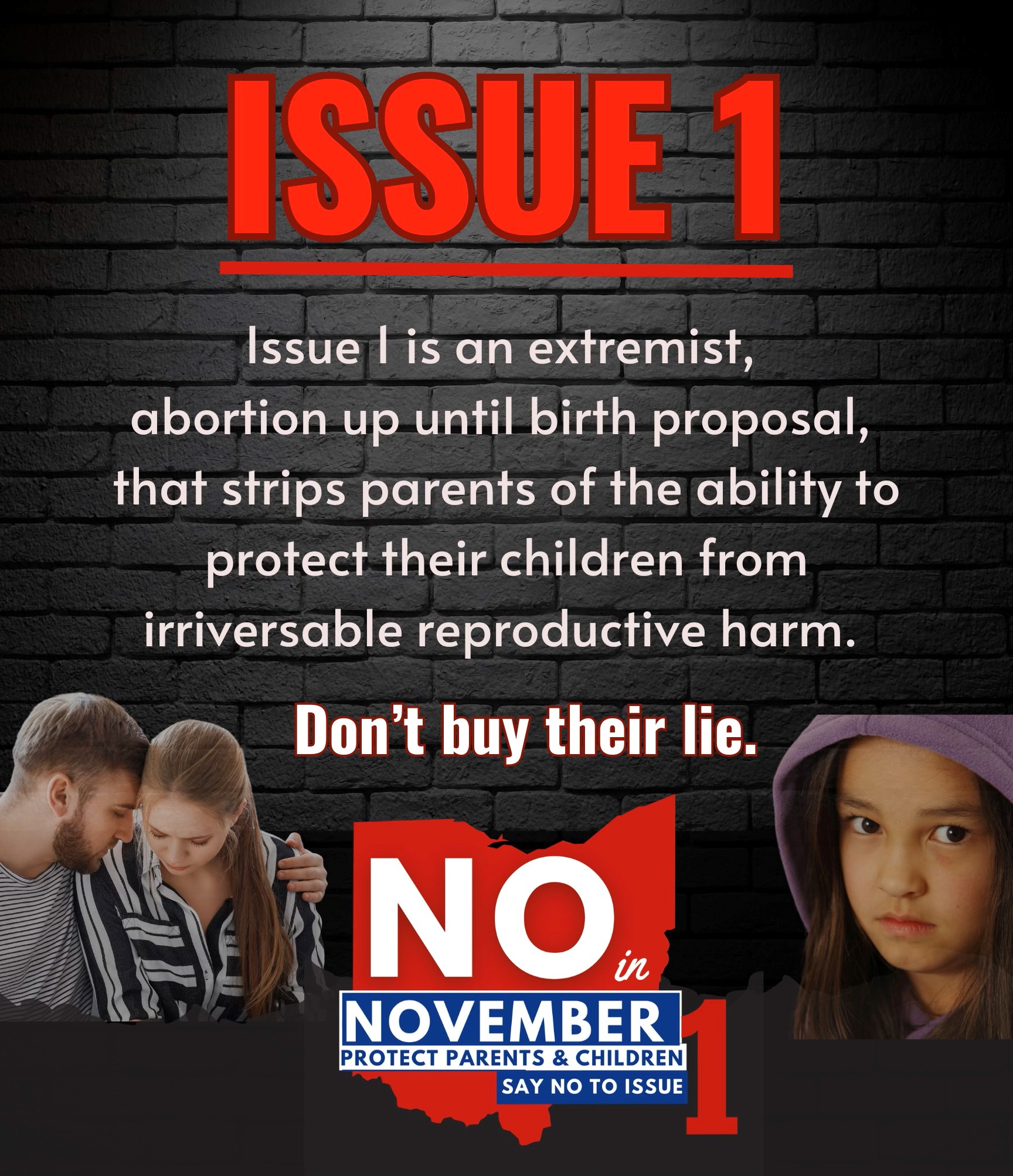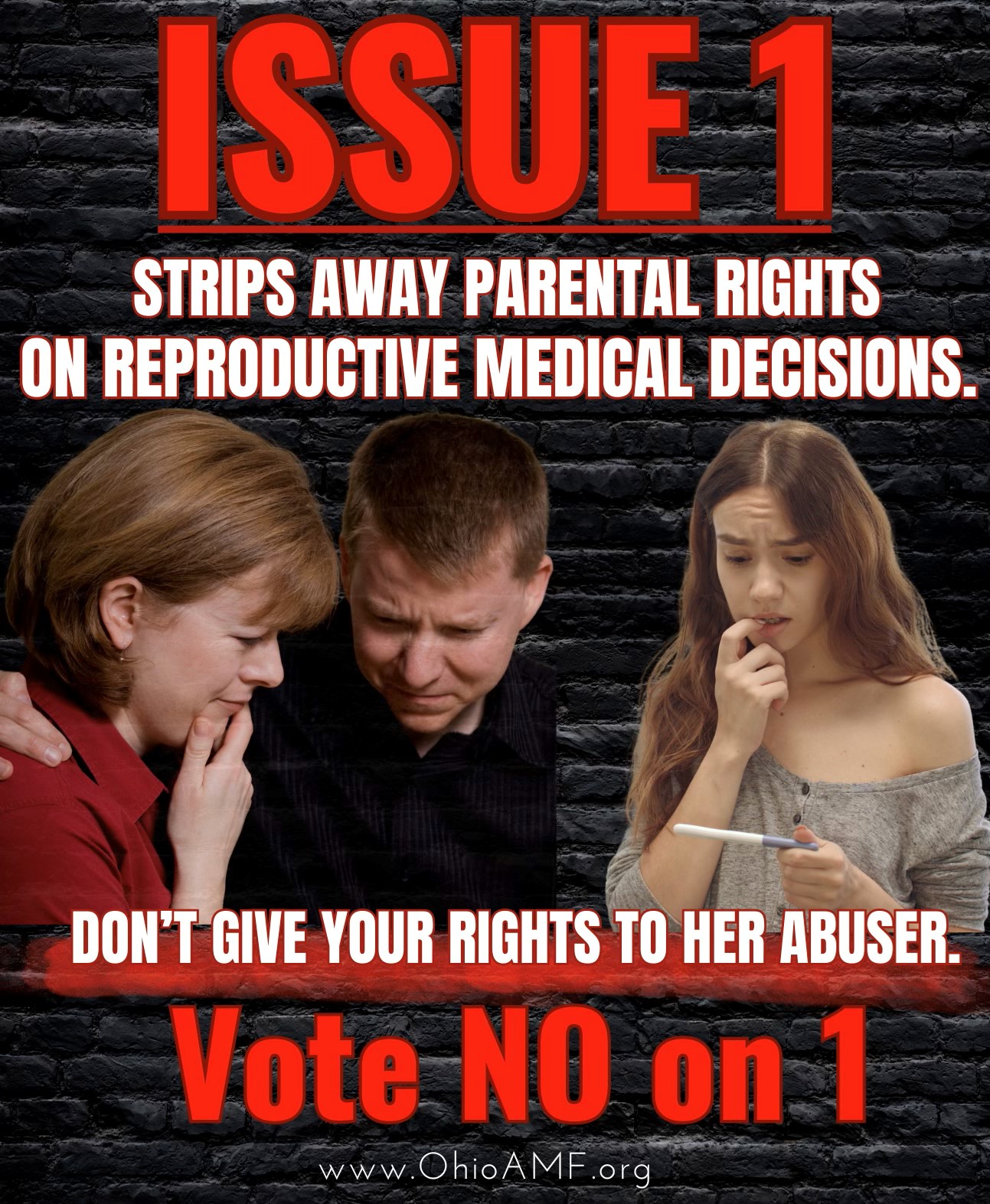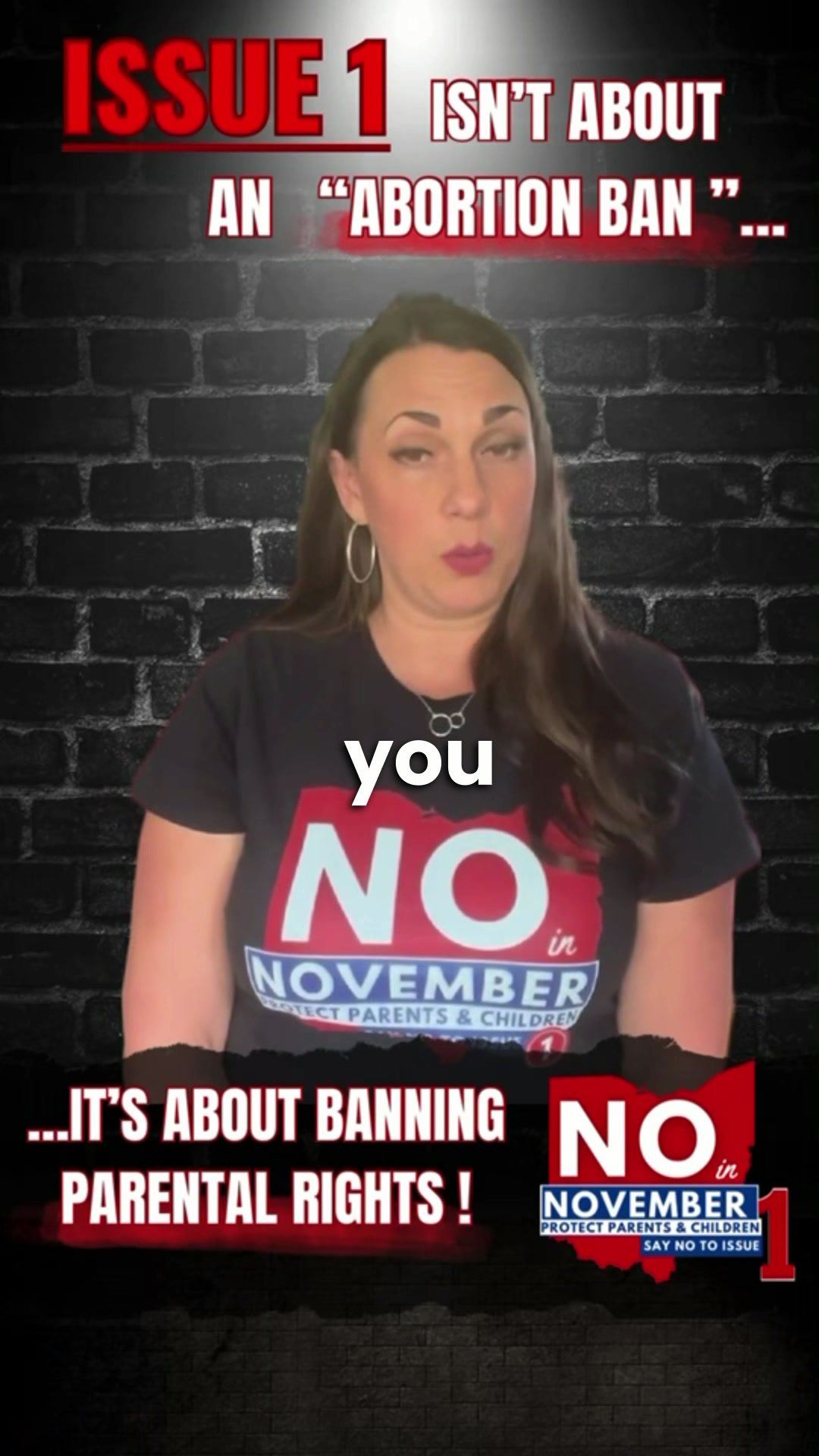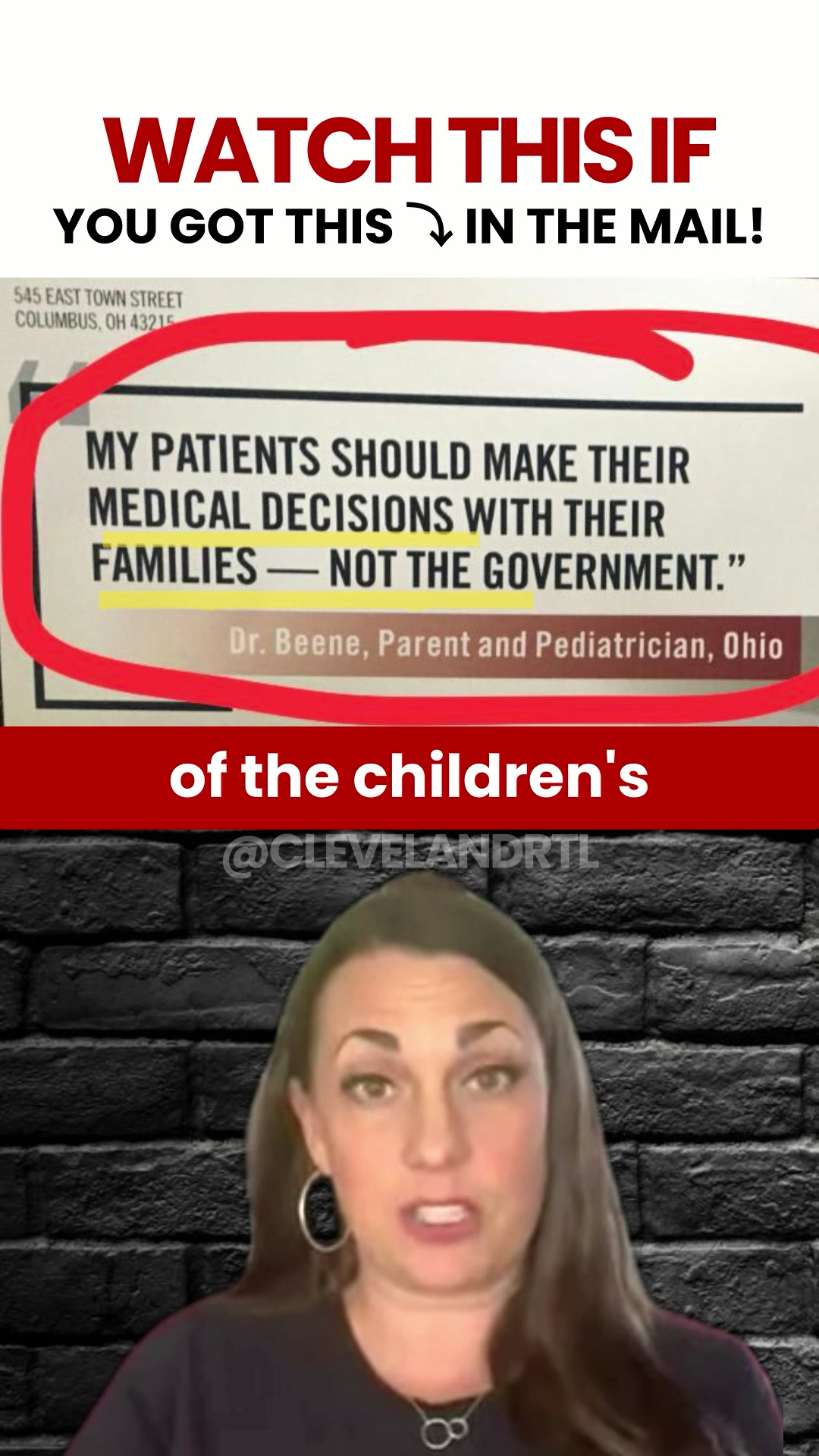

Vote No on Ohio Issue 1
This page is an archive of Issue 1
In the upcoming Ohio election, voters will have the opportunity to make a critical decision on an initiative known as Issue 1.
This legislation has been advertised as a measure to protect women's "reproductive health" rights. It is essential to understand the full implications of Issue 1. Beneath the surface, this initiative poses a significant threat to parental rights and the wellbeing of children.
Call to Action
1) Download our NO in November content “toolbox” and share them on your social media platforms as well as text them to 10 family members or friends and remind them Voting is on November 7th! Download all our content via Zip file (367MB) or get individual content here (scroll right for more):
2) You can also print Protect Women Ohio flyers to hand out to voters at least 100 feet from the polling entrance: Downloadable flyer here.
3) Check your local Republican party headquarters for “no one issue one” signs (or make your own) and wave them on voting day at the busiest polling location in your district.
The Deceptive Nature of Issue 1
At first glance, Issue 1 may appear to be aimed at addressing what proponents argue are essential rights pertaining to "reproductive" matters. Nevertheless, it is imperative to delve deeper into the legislation's intricate details, revealing an underlying agenda that extends beyond "reproductive rights".
This legislative proposal brings to light legitimate concerns regarding parental rights, an enduring cornerstone of our societal values. Parents traditionally hold a pivotal role in shaping their children's upbringing and welfare, including decisions of medical significance. Issue 1 raises alarms as it threatens to undermine this longstanding principle, potentially depriving parents of their influence in choices concerning abortion, the use of puberty blockers, or gender reassignment treatment for their children.
It is crucial to underscore that while safeguarding "reproductive rights" is deemed crucial by some, it should not come at the cost of compromising parental rights — a fundamental aspect deeply entrenched within our legal and ethical framework.
"Reproductive Choice"
Ohio Advocates for Medical Freedom (OAMF) staunchly advocates for medical freedom, a principle rooted in the fundamental definition of medicine as "the science and art dealing with the maintenance of health and the prevention, alleviation, or cure of disease."
Within this framework, OAMF takes a clear stance regarding "reproductive choice", that - except in cases where the life of the mother is at risk - terminating the life of a fetus contradicts the very essence of maintaining health.
Furthermore, OAMF maintains the perspective that - once again, with potential exceptions to preserve the life of the mother - a fetus should not be categorized as a disease.
In aligning our advocacy with this perspective, OAMF underscores the importance of preserving life while recognizing the complexity of the debate surrounding "reproductive choice" and its implications for medical freedom.
Puberty Blockers
Another concerning aspect of Issue 1 revolves around its potential impact on the use of puberty blockers, a topic fraught with debate when it comes to their administration to children diagnosed with gender dysphoria.
Under the provisions of Issue 1, parents may find themselves facing limitations on their ability to make these decisions for their children. This legislative approach raises questions about the balance between parental rights and the authority of medical professionals, particularly when it comes to contested matters such as the use of puberty blockers.
It is crucial to recognize that the decision to initiate or discontinue puberty blockers should be informed by comprehensive medical assessments, in-depth consultations, and a consideration of the individual needs and circumstances of each young person. Parents often play a pivotal role in this process, collaborating closely with healthcare providers to make decisions that prioritize their child's physical and psychological health.
Issue 1's restriction on parental involvement in these decisions could disrupt this collaborative approach and hinder the ability of families to navigate the complex terrain of medical care for children diagnosed with gender dysphoria.
Gender Reassignment Treatment
Issue 1 introduces yet another area of concern by limiting parental input in decisions related to gender reassignment treatment or surgery for their children.
Gender reassignment is a multifaceted and profound process with far-reaching implications, especially for minors. While it is essential to acknowledge the complexities and sensitivities surrounding these medical procedures, Issue 1's proposed restrictions on parental involvement raise significant questions.
Parents play a pivotal role in guiding their children's lives and well-being, and this includes making decisions about their medical care. The erosion of parental authority in this matter would disrupt the established dynamics of family decision-making, which have traditionally been guided by parents' understanding of their child's best interests.

